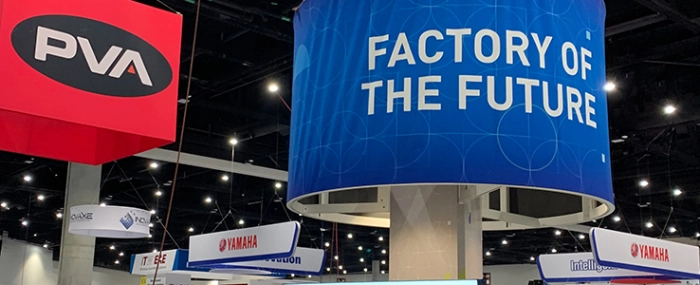
© Evertiq
General |
Into the future, San Diego style
IPC APEX EXPO, the North American electronics manufacturing industry’s biggest gig, has left the teenage years behind with this year’s 20th anniversary show held Feb 3-8 in San Diego.
IPC President and CEO John Mitchell kicked off the event with remarks on the main stage prior to space travel pioneer and keynote speaker Burt Rutan’s presentation on his professional and personal passions that clearly overlap.
Following Mitchell’s reminder that the show is “the fastest growing association show in the industry,” a little fact-checking certainly validated the flex, as my teenagers say. According to Trade Show News Network (TSNN), IPC APEX EXPO topped its list in 2019 as the fastest growing U.S. trade show in terms of attendance.
While cool, Mitchell’s statistic wasn’t as interesting as a few other of his “shares.” For example, he posed the query, “How do we drive progress in the industry?” His answer included a short list of drivers that he predicted would lead the progress, as well as gentle reminder of the industry’s need to collaboratively tackle the challenges the drivers will surely present. Among his short list: Industry 4.0 (with the “assembly line, IoT, and digitization” as the top priorities); AI (“making smarter decisions more quickly”); 3D printing and additive manufacturing; and new materials, such as graphene, which by now everyone knows is stronger than steel and more flexible. Another up-and-comer we may be hearing more about according to Mitchell: lights-out factories.
Truly lights-out factories (a.k.a. “dark factories”) are a rarity, though Japanese robotics maker FANUC has achieved it, more or less: Robots are building robots at a rate of two dozen every 24 hours, for up to one month without supervision. A close second is The Netherlands-based Philips, where a team of 128 robots produce electric razors. Still, a dozen or so quality assurance humans check their work at the end of the line.
Still on the topic of robots before swerving back into the APEX lane, but certainly aligning with one of Mitchell’s key drivers, Industry 4.0, Panasonic unveiled its new autonomous delivery system for the factory floor, featuring the Danish-made MiR100, which pulls inventory and delivers to the programmed destination, but not just to turn around and return to its base; this system hits the factory road with a digital map, making multiple stops along whatever route someone programs into it.
What does something like this mean for electronics manufacturing? The potentials are pretty far-reaching: inventory control, cost and time reductions, and more. Evertiq will be watching for developments in this dynamic area of growth.
Before concluding, Mitchell dropped the necessary and often heard battle-cry about the skilled workforce shortage facing the industry, remarking, “We need an aggressive workforce strategy.” The key word in that clipped sentence being “we.” One such solution is education, and the newly created IPC Education Foundation, which awards scholarships in support of career skills pathways to help prepare students for careers in the electronics manufacturing and assembly industry. So, as our workforce ages out and we glean the valuable information from their craniums before they go, and we create skills-based curriculum and provide educational opportunities to attract the next generation, what do we do about the workforce shortage we are experiencing today?
According to the National Association of Manufacturers, 522,000 jobs were left on the table in September of 2019. And in a joint 2018 report issued by Deloitte and The Manufacturing Institute, the U.S. may be faced with filling up to 2.4 million jobs in the manufacturing sector between 2018 and 2028.
Even with its recent slowdown, U.S. manufacturing is still growing, and Mitchell’s shout out to the industry to put their noggins together to find solutions makes sense.
One of Mitchell’s final pleas as he wrapped up concerned the importance of strengthening and improving the supply chain and IPC’s advocacy in that arena. Speaking of the supply chain, what are the weak links? One obvious answer is Coronavirus. Public health emergencies that darken factories, and not in a good way.
Until next year, stay classy San Diego.


